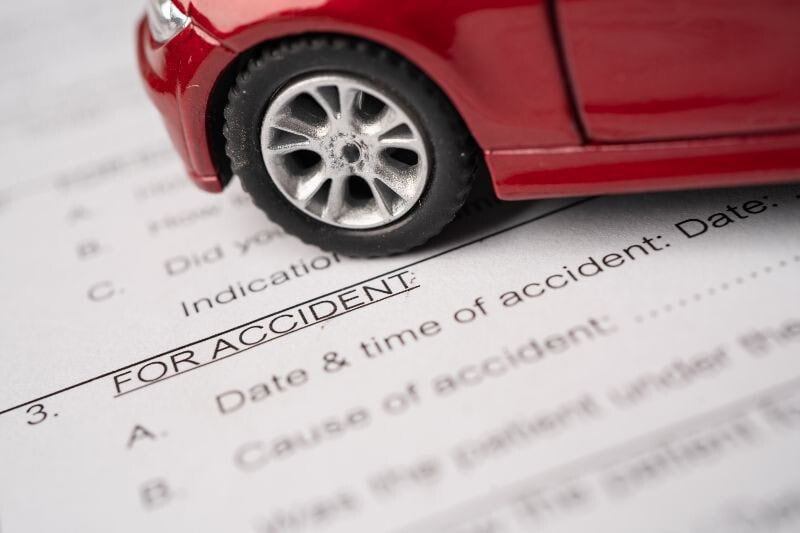What is a Traumatic Brain Injury?
A traumatic brain injury (TBI) occurs due to sudden trauma to the head that causes brain damage. If your head hits an object with force or an object penetrates the skull and sinks into the brain tissue, it can cause a TBI. The result is a disruption in normal brain functioning, which can sometimes lead to life-long disabilities depending on the severity and location of the injury. Symptoms of a TBI include the following:
- Headache
- Confusion
- Blurred vision
- Problems with memory, concentration, and thinking
- Mood changes
- Bad taste in the mouth
- Dizziness
- Ringing in the ears
- Convulsions and seizures
- Problems with coordination
- Agitation and restlessness
Recovering from a traumatic brain injury can be lengthy, and challenging. Treating a TBI is also costly, so if you or your loved one suffered a TBI due to someone’s negligence, you might need to pursue compensation for the injuries. Consult an experienced personal injury attorney in Mesquite for legal guidance on filing a claim.
How Does the TBI Recovery Process Look Like?
Recovering from brain injury occurs in stages, and while some people move quickly through the phases, others take more time and progress slowly. During your recovery, you may be unable to pursue legal action against the at-fault party. You and your loved ones need the help of an aggressive catastrophic injury attorney in Mesquite to fight for your rights. Letting an expert handle the issue ensures you file a claim within the statute of limitations as you focus on healing and recovery.

Medical experts use the Ranchos Scale to measure improvement, and they outline the following stages of TBI recovery:
Coma
A severe traumatic brain injury may cause a coma, the deepest state of unconsciousness. Coma patients generally have no eye movement and lack purposeful movement, speech, and communication. They don’t respond to the environment and don’t wake up even with stimulation. The patient can remain in this state for weeks, months, or years.
Vegetative State
Coma and vegetative state are two different stages of TBI recovery, despite people using them interchangeably. Patients in a coma have no neurological response, but those in a vegetative state may have regained some reflexes and appear awake. They may have eye movement and react to stimuli because the brain has begun to heal, and some responses in the brain remain intact after the injury. Once patients can respond and communicate, they’re on their way to the subsequent recovery stage.
Minimally Conscious or Localized Response
The patient may drift in and out of consciousness in the minimally conscious state. They have gained some awareness of their surroundings and may take medications to help stimulate the brain and boost full consciousness. As they progress with recovery, consistently respond to instructions, and communicate verbally or non-verbally, they have reached the fourth recovery state of a TBI.
Post-Traumatic Amnesia
The brain is in an extreme state of amnesia, and the patient can’t recall where they are and how they got there and have no memory of daily events. It’s common for patients in this stage to display aggressive or inappropriate behavior and lose their inhibitions. Other stages that follow are the following:
- Confusion: The patient may follow more commands and communicate but still have memory issues, and focusing on tasks may be problematic.
- Automatic or appropriate: They can follow strict schedules but have challenges planning and starting activities independently. They need support and can’t live alone.
- Purposeful or appropriate: The patient’s self-awareness and memories have improved, although social interactions may be tricky despite various coping mechanisms. They can live on their own with minimal help.
- Modified independence: By the time they reach this stage, the patient has fully recovered and can handle multiple tasks at once, plan, and make various life adjustments to unexpected circumstances. They may still be slow in responding than they were before the injury, but they can cope.

TBI victims need ongoing therapy to help them through the various recovery stages. Treatment and therapy are costly and may drain you of your resources. So, don’t let the negligent party go scot-free. Contact an experienced catastrophic injury attorney in Mesquite, TX, and let them help you file a compensation claim and pursue it.
How Can I Prove Negligence in a Traumatic Brain Injury Claim?
You can file a TBI lawsuit based on the liable party’s negligence. Proving negligence in personal injury cases is often complex, but an experienced Mesquite personal injury lawyer knows how to navigate the legal system to help you win. They can help you create a robust strategy that shows the following four crucial elements:
- The defendant owed you a duty of care
- The defendant breached that duty
- The breach of duty was the cause of the accident that caused your injuries
- You were injured and suffered damages as defined by law
Linking someone’s negligence to brain injury is often complicated, so your Texas injury lawyer will help you piece the necessary evidence to enhance your chances of a favorable outcome.
Pursue the Compensation You Deserve Today With Professional Legal Counsel
Sustaining a traumatic brain injury can have life-changing consequences that will require ongoing adjustments to your daily life. A qualified Mesquite catastrophic injury attorney can help you file a lawsuit to collect compensation for the injury, hospital stays, lost wages, medical procedures, and general pain and suffering as you focus on therapy and treatment.

We have a compassionate catastrophic injury attorney in Mesquite who can help you file a TBI compensation claim against the negligent party liable for your injury. While filing a lawsuit can’t change the outcome of the accident, it can help you recover damages to pay for and adjust to life with a TBI. Call 972-682-9700 to speak to experienced lawyers at the Oberg Law Office.


